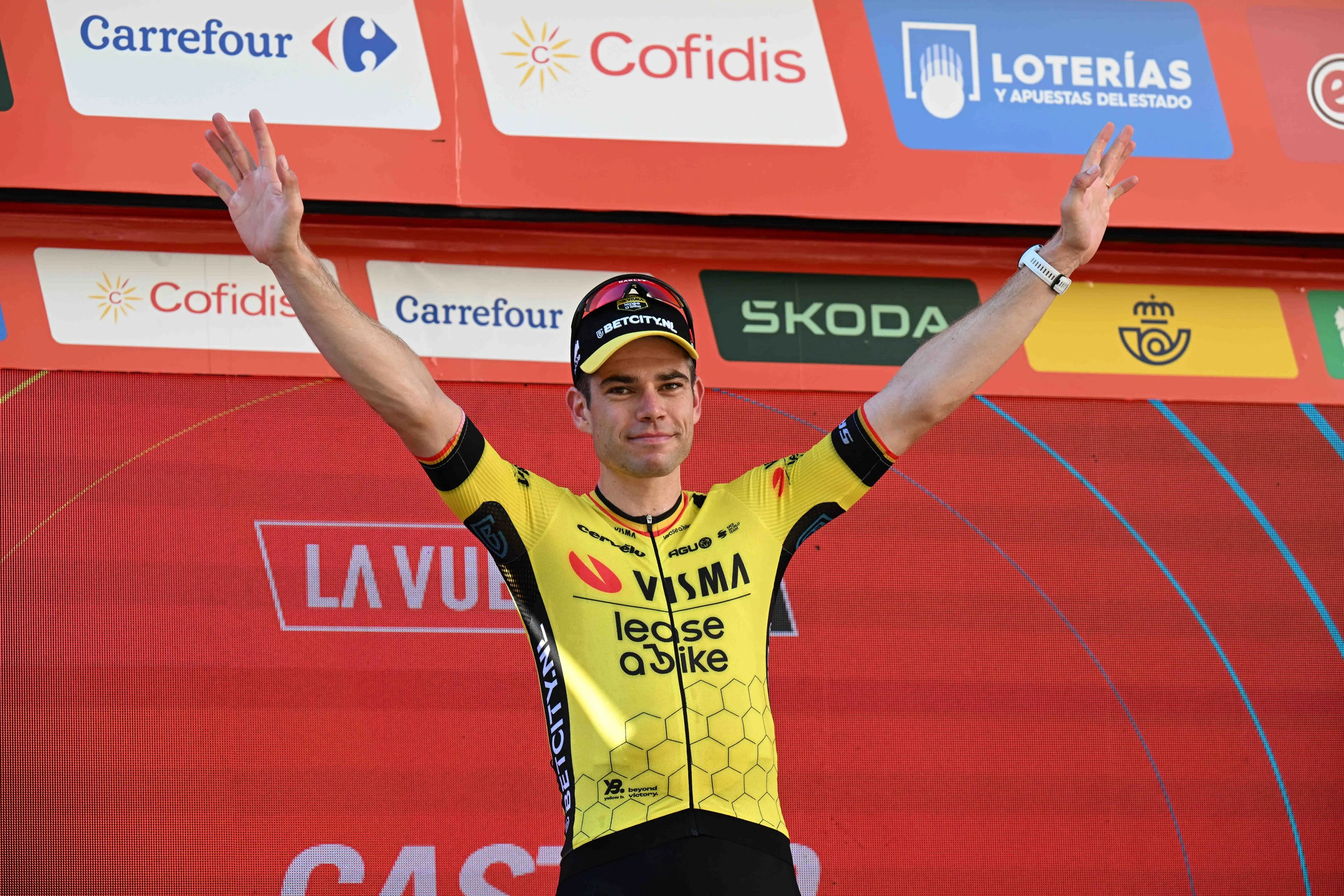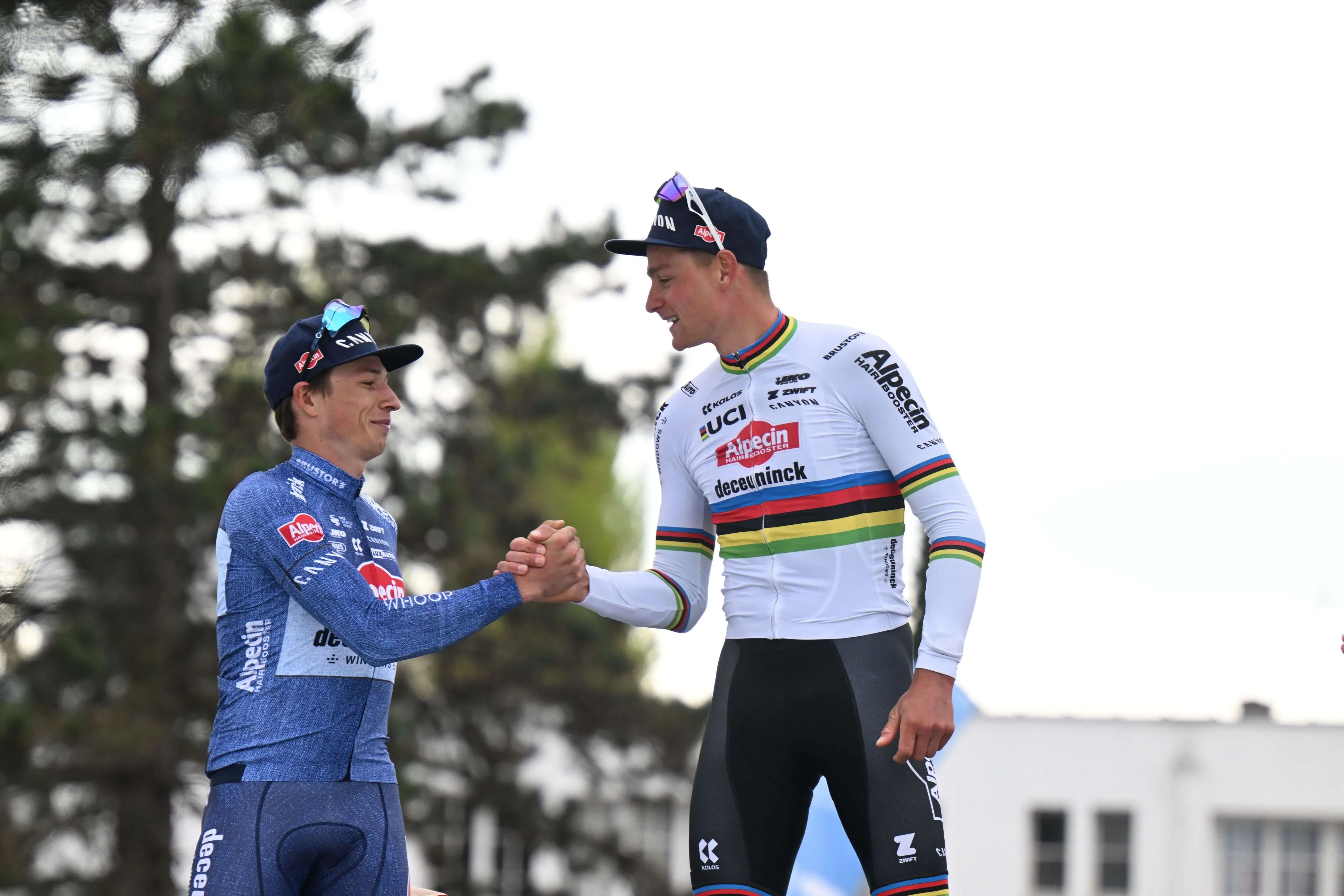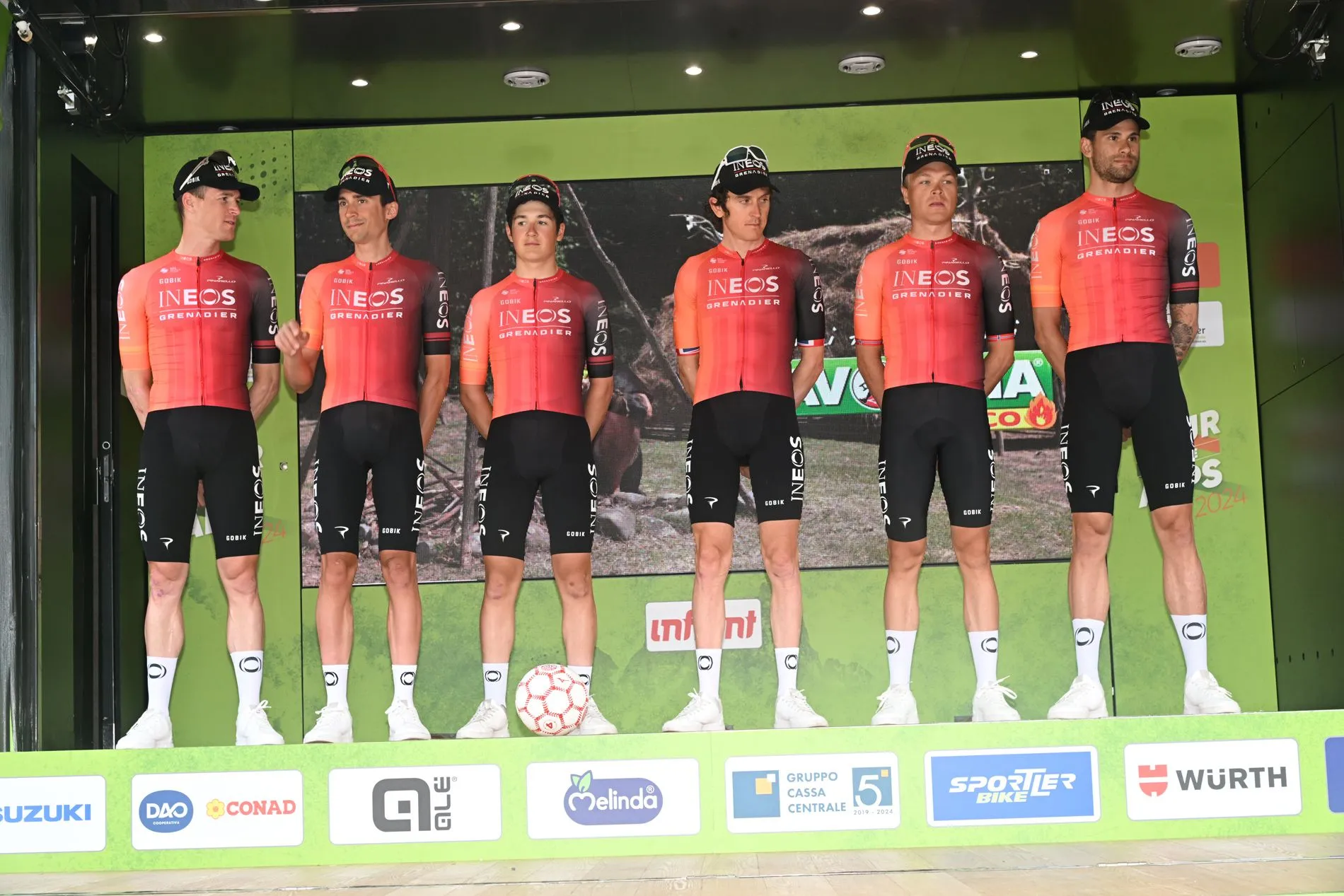Van der Poel's or Van Poppel's lead-outs are a breeze compared to the ones from the great master.
CyclingWednesday, 23 October 2024 at 15:49
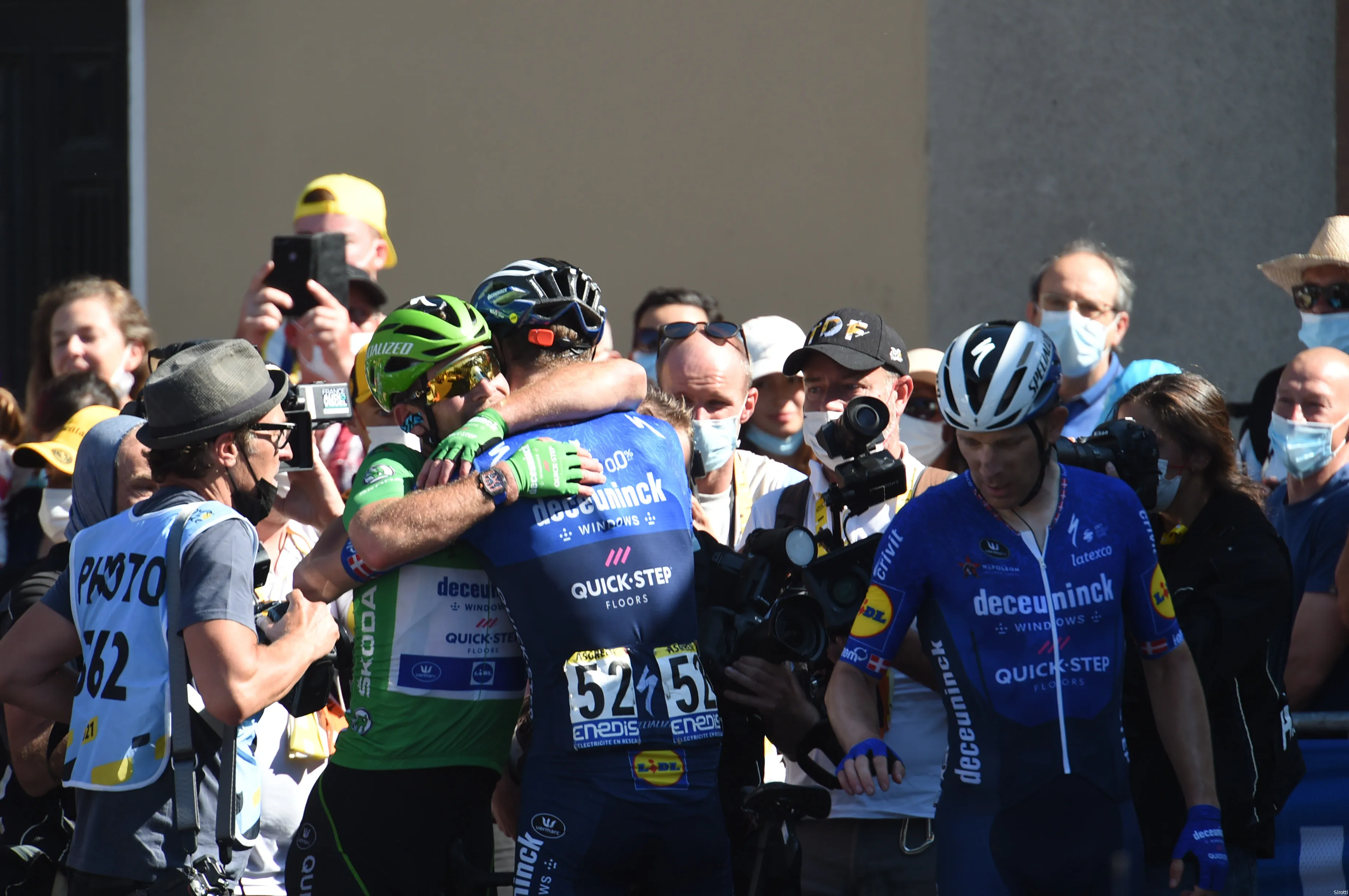
After the 2024 cycling year, the peloton is losing several iconic riders, and so it is time to say goodbye, this time to Michael Mørkøv. The Dane had an incredible journey in the cycling world, in which he would ultimately prefer his teammates to see him win than himself. IDLProCycling.com looks back on the career of a Dane who tossed the term lead-out into the world in capital letters.
It was April 30, 1985, when little Mørkøv was born in Kokkedal, a small town just north of Copenhagen's capital. That is where Michael learned to ride a bike, which led to the beginning of what would eventually become an impressive cycling career. He started in 2005, the year he would turn 20, with Team GLS, a continental team from Denmark. In that team, he rode with Anders Lund, a compatriot whom he would later succeed in a position other than cycling.
Mørkøv had also gained experience on the track at a young age. Starting in 2005, he therefore focused frequently on the track. That year, he won the Madison race at the U23 Championships. In previous years, he had won elite medals at the Danish Championships, including a gold medal in the points race. So, we can safely describe him as a talented track cyclist. The combination of track and road cycling would partly mark Mørkøv's career.
On the road, the still-young Dane continued to build his career. There were no actual top results in the U23s, although he did finish second in the Tour of Flanders in 2007. In 2008, he won in South Africa for the first time in the U23 category: Mørkøv won a stage in the Giro del Capo. Unsurprisingly, the focus was still mainly on the track at that time. He then formed a dynamic duo with Alex Rasmussen in Madison. It became a duo that regularly won Six-day racing (nine in total), with a World Championship title as the absolute highlight in March 2009 as well.
Mørkøv turned pro with Saxo team, where he kick-started his road career in 2013
From then on, Mørkøv shifted his focus back to the road anyway. The almost 24-year-old Dane signed a contract for the year 2009 with Saxo Bank, the then Danish WorldTour level team. He was reunited with Anders Lund and became a teammate of Fabian Cancellara, Andy Schleck, and K Karsten Kroon, among others. In his debut year at the highest level, he was cycling around anonymously, with a seventh place in the Châteauroux Classic (a 1.1 race in France) as his best result.
Then, in 2010, Mørkøv cycled the Giro d'Italia, his very first grand Tour, as a domestique for leader Richie Porte. The Dane finished the Tour of Italy in 129th place, and Porte finished seventh. The following two years in the Team Saxo Bank colors can again be described as anonymous, but the cycling world became increasingly familiar with his fast sprint. Unfortunately, the victories did not occur until the year 2013...
That year, Mørkøv decided not to participate in track tournaments for the first time in his cycling career. He was absent at the Danish championships (where he won gold in the Madison from 2009 to 2012), the European Championships, and the World Championships... He did it all in anticipation of winning a road race for once. The plan worked, as Mørkøv became Danish road champion on June 23, 2013. In his national champion's jersey that fall, he confidently headed to the Vuelta a España, which he rode for the first time. As road captain, he went to Spain, and although he was on stage six, he was suddenly permitted to fight for his chances.
That sixth stage would eventually end in the books as a particular stage with a crazy ending. German rider Tony Martin accelerated from the start that day but saw that no other rider had secured a ticket for the early breakaway. So solo, Martin went from the beginning in Guijuelo toward the finish in Cáceres, 175 kilometers away. The peloton seemed to miscalculate as the German continued alone into the final kilometer. The peloton pulled out all the stops, but Martin appeared on his way to one of the most impressive solos in history. However, after about twenty meters, he finally came up short as the furious peloton caught the German in a sprint. Like a jack-in-the-box, Mørkøv crossed the finish line first in the sprint. The Dane finally took the big win on the road he longed for. The footage is still amazing...
Read more below the clip!
Stage win in the Vuelta or not, road captain Mørkøv became more and more lead-out-Mørkøv
In the following years, Mørkøv continued to develop as a lead-out road captain who could also deal with a mountain. Yet he also got chances in the sprint himself, although he did not manage to make the most of them. A month after his Vuelta stage victory, he was beaten by John Degenkolb in the sprint in Paris-Tours; in February 2014, Tom Boonen was just slightly faster in the second stage of the Tour of Qatar, and the first stage of the 2014 Tour of Luxembourg André Greipel was too strong. In the latter race, he did secure third place in the GC. Only in 2015 did he finally claim victory again: Mørkøv won the final stage of the Tour of Denmark in the bunch sprint ahead of teammate Matti Breschel. That would be one of his last races in Saxo team colors.
Indeed, when Saxo pulled out as a sponsor for the 2016 cycling year when the team continued under Tinkoff, Mørkøv's adventure with that team also ended. He moved to Team Katusha, where Alexander Kristoff added victories in succession. As road captain, Mørkøv led the exceptionally fast Norwegian to many victories. He kept developing into a lead-out and saw teammate Kristoff win as many as 22 times in two years until midway through 2017, both Mørkøv and Kristoff decided to leave Team Katusha Alpecin.
Whereas the Norwegian chose UAE Team Emirates for season 2018, the now 32-year-old Dane went to Patrick Lefevere's team. It was with that team that Mørkøv developed a world-class lead-out. Quick-Step Floors had Fabio Jakobsen, Elia Viviani, Fernando Gaviria, and the then-still-talented sprinter Álvaro José Hodeg in its ranks that year. He helped the Belgian formation to eighty (!) victories in his first year as a lead-out. He wrote down the fourth victory of his career in 2018, as Mørkøv became Danish champion for the second time.
Read more below the photo!
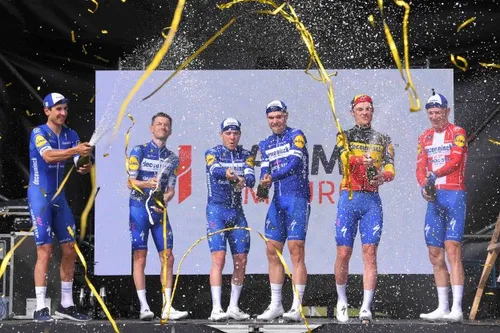
Mørkøv (pictured right) helped all sprinters at the Quick Step team to numerous victories
Jakobson, Viviani, Bennett, Hodeg and eventually Cavendish: all won thanks to Mørkøv
The Madison of the 2020 Olympics caused the 33-year-old strong rider from Kokkedal to return to the track at the end of 2018. His old Madison partner, Alex Rasmussen, had since quit after doping issues, so Lasse Norman Hansen became his new partner. In late 2019, they became European champions together, followed a few months later by the world title in 2020. The Olympics were moved to 2021 due to COVID-19, but it did not adversely affect Mørkøv and Norman Hansen. The duo took Olympic gold and even won another world title in that discipline a few months later.
Meanwhile, on the road, Mørkøv developed into the best lead-out in the world. His team, Deceuninck-Quick Step, achieved no less than 89 (!) victories in 2019. Viviani, Jakobsen, Hodeg ... All were guided to win by this excellent Dane. He awarded a good day on the bike with a victory at the end of June that year: for the second year in a row, Mørkøv became the Danish road champion. It was the fifth win in his career, and it would eventually be the last.
But the world's best lead-out continued happily guiding his sprinters to victory in the cycling year shortened by COVID-19 (2020). Sam Bennett joined the team for the first time that year, riding with Mørkøv together at the Tour Down Under in January. The Irish sprinter won immediately in the bunch sprint after again excellent work by the Dane. Bennett won two stages in the Tour that year and one in the Vuelta, all three with brilliant help in the finale.
In 2021, Mark Cavendish signed with Deceuninck-Quick Step. That year, Mørkøv became the regular lead-out for Cav, who was still chasing Eddy Merckx's Tour stage record. Stage wins 31, 32, 33, and 34 in the Tour de France were all recorded in 2021; he often only had to sprint 100 or 200 meters for them. Cavendish thus matched The Cannibal that year, while the Dane's lead-outs continued to propel all of the team's sprinters to victories.
How could it be otherwise? Mørkøv became part of cycling history written by Cavendish
In the 2022 and 2023 Tour de France, Jakobsen was the rocket to fire Mørkøv to stage wins but failed both years. Meanwhile, Cavendish, who was prohibited from the Tour by Lefevere's team, had opted for an adventure with Astana. In the 2023 Tour de France, the first Tour that Cavendish rode in the Astana shirt, he was very close in the sixth stage. The Briton then finished second in Bordeaux but had to drop out the following day after a crash. Merckx's record thus remained matched only by Cav but not broken. There would be another chance for that in 2024, although the British sprint bomb had enlisted help for that ...
Indeed, at 38, his good friend Mørkøv opted for another year in the pro peloton, but with the Kazakh formation. He had to and would take Cavendish to his 35th stage victory in the Tour in his final year as a cyclist. Besides the Dane, the Manx Missile and Cees Bol and Davide Ballerini had an excellent lead-out train. It was finally in the fifth stage of that Tour de France that everything came together. In the streets of Saint Vulbas, Cavendish, with help from Mørkøv and the entire Astana team, raced to his 35th stage victory in the Tour de France. Cycling history is before our eyes, the eyes of the cycling world, the eyes of perhaps the world, and the eyes of the best lead-out in the world. For Cavendish, the Tour would be the last race of his career. Mørkøv did not compete after a corona infection on stage 12, after which he prepared for the last big goals of his career.
These were on the track, as the Dane wanted to excel twice more on the track at the Olympic Games in Paris and the World Championships in his own country. With Niklas Larsen, he took Olympic bronze in Madison, after which he focused on the final road races. Paris-Tours would eventually become the very last one. There was no lead-out this time, but one more time, enjoying racing on the road. Far behind winner Christophe Laporte
Mørkøv crossed the finish line in Tours covered in mud. He didn't want to stop then, as the World Championships track cycling in his homeland was his last performance on a bicycle. The final result, the same Larsen in Madison, would be identical to the one in Paris, namely a bronze medal. It was a fitting farewell in his homeland, after which, at the age of 39, he retired from cycling for good.
Read more below the photo!
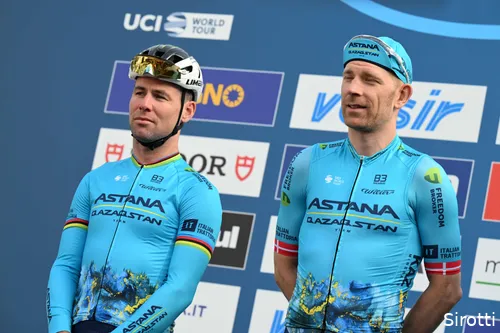
Courtesy of Mørkøv, Cavendish broke Eddy Merckx's record with his 35th stage victory in the Tour
Michael Mørkøv: the rider who put the word "lead-out" on the map worldwide
Thus comes an end to (track) cyclist Michael Mørkøv, a career in which he scored numerous victories on the track and made the Madison his specialty. A career in which he managed to win five times on the road, during which he was allowed to wear the Danish champion's jersey for three years. Still, Mørkøv's role as lead-out will be remembered in cycling minds. The Dane was, for a long time, a demanding rider who could win on his own in the sprint, but he knew his place in time and developed into the best lead-out in the world.
Whereas many sprinters will thank him for the many victories they could credit to him, the cycling world thanks Mørkøv for his unprecedented team spirit and courage. It was a rider with powerful legs but probably could not reach the absolute top of the sprinters' field. Therefore, it became a rider who sacrificed himself for his teammates. A rider who sacrificed his own career for the career of his sprinting teammates. A rider who ultimately preferred to see a teammate win rather than himself. A unique man who will not have a successor overnight. From now on, everyone will want to be the new Mørkøv, but in 2024, Van der Poel's or Van Poppel's lead-outs are a breeze compared to the ones from the great master.
As race-crazy as he is, the next challenge is already waiting for Mørkøv, as he starts the new year as national coach of the Danish national team. Who will succeed in that role? Anders Lund was a teammate at Team GLS in 2005 and 2006. Both men went their separate ways, and their paths crossed after almost twenty years. The national team coaching position will be Mørkøv's first challenge in an administrative role, but with his compassion and team spirit, it will undoubtedly be a success.
All the best to you, Michael!
Read also
IDL-productions
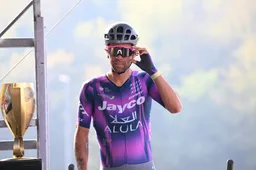
Sanremo, a world title and the yellow jersey: Michael Matthews escaped death - and that reignited his spark
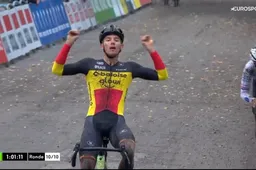
Unlike road colleagues Van der Poel or Van Aert, Nys rides twice as many cyclo-crosses: 'He doesn't want to ride only ten cyclo-crosses'
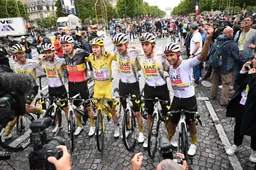
95 (or was it 97?) wins and a new record year, but losing that one race still hurts UAE Team Emirates - XRG

Former cyclocross world champion recalls wonderful memories of young Nys: "Back then we thought: that's not going to work out"

There was smoke so there was fire, but in 2026, how will Lidl-Trek make sure that fire doesn't flare up again?
Latest Cycling News

🎥 At Unibet and in Tietema's house, they see with pain in their hearts how Tadej Pogacar again leaves no crumbs
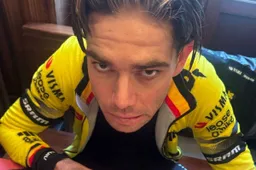
Strava shows: Wout van Aert seems to be doing things a little differently toward cross and the road
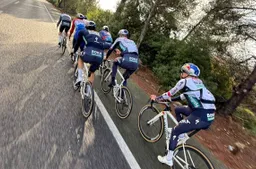
Pogačar (UAE) vs Evenepoel (Red Bull): records fall as rivals unleash monster distances
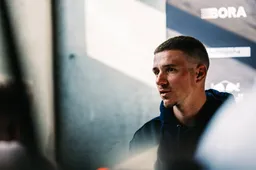
'Was a bit afraid to say it next to Primoz, but that's the best example'; Remco Evenepoel on Red Bull-ambitions
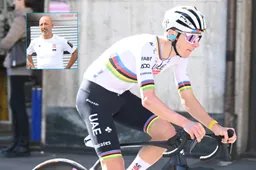
Why is Tadej Pogacar's program (still) so limited for 2026 and when will he go searching for altitude?
Popular Cycling News

🎥 Demi Vollering crashes hard in training and lashes out at motorists: 'Gives me a lot of confidence in humanity...'
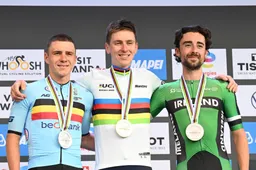
Everyone is waiting for the day Pogacar retires: 'I don't know if that's a good thing for Ben Healy,' says EF-boss Vaughters

Why is Tadej Pogacar's program (still) so limited for 2026 and when will he go searching for altitude?

Van Aert has an explanation for his ups and downs in 2025: 'Noticed I was cooked after three hours of training'
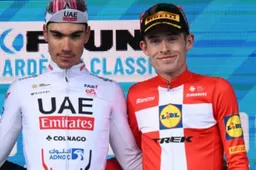
Skjelmose regrets statements about 'fellow nerd' Ayuso: 'I told him I was sorry'
Latest Comments
- Those events are mental rest for him. Fun, without expectations. *Sagan lost his abilities because he gained weight and got lazy. Pogi will likely retire before that has a chance at happening.Veganpotter14-12-2025
- Ah, the consequences of riding for Israel.Veganpotter11-12-2025
- Pidcock could follow everyone but Pogi while finishing 3rd. No second place rider this season😃Veganpotter16-11-2025
- Now the Palestinian protestors can stop their whining. Trump came to the rescue. So they can now STFU and go back to waving the rainbow flags.raufus15-10-2025
- Cracked the code lol. If it was that easy to 'crack the code' jonny Vegas would be charging up the Kwaremont giving Pog a dose of his medicine. Evenepoel can't match pog on a climb and neither can mvdp. Anything with a half difficult climb and Pog smashes the field. Even on flat(ish)parcours like Roubaix it came down to a mistake and crash by pog to definitively crown mvdp. MSR is the only one that Pog probably won't win.kevpt10-10-2025
- We've seen this movie before. I think Pogacar is doping.DeadBlow10-10-2025
- 👍Bea08-10-2025
- 👌🏻Bea08-10-2025
- What the data doesn't show is how much of an effect drafting had for evenepoel. Pogacar went with del toro at 100km whilst Evenepoel was still in the bunch. Despite the bike changes he still had a lot of assistance getting back to the bunch. Pogacar then rode 60km solo whilst evenepoel rode with Healy/Skjelmose until going solo in thd last 10-15km. Thats ~20% less power / energy requirements for 45-50km. Apples and oranges...kevpt30-09-2025
- 👏👏Bea24-09-2025
Loading
